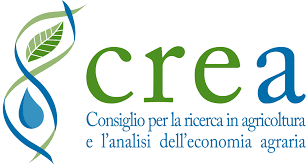CREA

Nardi T. (CREA - Council for Agricultural Research and Economics, Research Centre for Viticulture and Enology, Conegliano (TV), Italy)
Microbial resources as a tool for enhancing sustainability in winemaking
In agriculture, the wine sector is one of the industries most affected by the sustainability issue. It is responsible for about 0.3% of annual global greenhouse gas emissions from anthropogenic activities. Sustainability in vitiviniculture was firstly linked to vineyard management, where the use of fertilizers, pesticides and heavy metals is a major concern. More recently, the contribution of winemaking, from grape harvest to bottling, has also been considered. Several cellar processes could be improved for reducing the environmental impact of the wh ol e chain , including microbe-driven transformations. This paper reviews the potential of microorganisms and interactions thereof as a natural, environmentally friendly tool to improve the sustainability aspects of winemaking, all along the production chain.The main phases identified as potentially interesting for exploiting microbial activities to lower inputs are: (i) pre-fermentative stages, (ii) alcoholic fermentation, (iii) stage between alcoholic and malolactic fermentation, (iv) malolactic fermentation, (v) stabilization and spoilage risk management, and (vi) by-products and wastewater treatment. The presence of proper yeast or bacterial strains, the management and timing of inoculation of starter cultures, and some appropriate technological modifications that favor selected microbial activities can lead to several positive effects, including (among other) energy savings, reduction of chemical additives such as sulfites, and reuse of certain residues.
http://www.uwo.ca/biology/YeastNewsletter/Index.html
Relations
- Network
- List
- Geolocation
- More
CREA - Consiglio per la ricerca in agricoltura e l'analisi dell'economia agraria
CREA is the leading Italian pubblic research organization dedicated to the agri-food supply chains. It is supervised by the Ministry of Agricultural, Food and Forestry Policies
